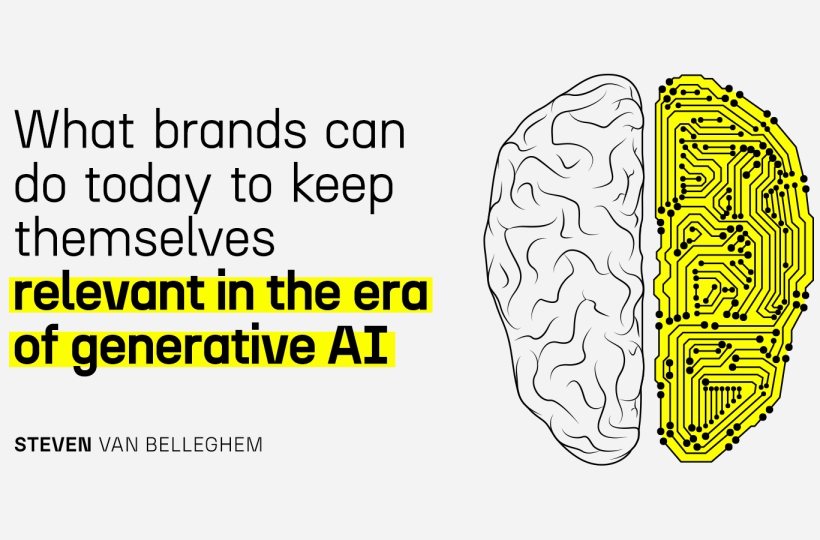What brands should do today to keep themselves relevant in the era of Generative AI

The new standards
I for instance thought that Spotify’s demo of its artificial intelligent DJ looked pretty impressive. An AI DJ selects the music it thinks you might like, and then combines it with spoken commentary around the tracks or artists, delivered in a realistic-sounding, AI-generated voice. In other words, it allows you to have your very own personal radio DJ.
And it is exactly these types of approaches that are becoming the new standards. If you look at the evolution of generative AI and specifically at ChatGPT, it’s clear that we’re moving into a phase where personalization will become truly excellent.
But there is also one really important point of impact that very few people talk about, but which I already wrote about in my former book. In the past traditional media were the key gatekeepers. Today for many people’s social media are the key gatekeepers. But in the future (and even parts of today) AI will become the new gatekeeper in our life.
AI as Gatekeeper
Back then, I gave the example from conversational devices like Amazon Echo with its sidekick ‘brain’ Alexa. Let me explain. The average consumer buys about a lot of ‘routine’ products per month: like toilet paper, tooth paste or coffee filters. If we’re honest, most of us do not care about the brands of these ‘unsexy’ products. And if we do, we tend to purchase the same ones. So, we are either in some sort of a routine buying pattern or we look for the most interesting price promotions. I wrote that at one point these types of products will almost automatically find their way to our home and that a company like Amazon would play a leading role in creating this form of ‘automated commerce’. That would make it some kind of gatekeeper between brands and consumers, one with a lot of power.
I still believe in that gatekeeper concept as we’ve seen algorithms carefully select the information that we receive. From product offerings to music and news: AI defines what we see and what we don’t see. And I believe that generative AI will accelerate and scale that gatekeeper dynamic.
So the question is: how can you and your company make sure that you survive the filter that chatbots like ChatGPT will most likely become? Data, of course, and lots of it, because that is their food, or fuel if you prefer.
Your online presence is a lot more crucial than you think
It’s a lot more crucial than you might think. I’m sure that you have seen these types of messages pass over your timeline with people mocking how ChatGPT completely missed the mark when they ask it to create a biography about themselves or offer information about someone else. They don’t realize that it is not the algorithms that failed. Most of the time, it just meant that there was not enough data about them available on the internet or that the available data was just not that accurate.
So if companies want to make sure that the customer will still have access to their products and information within the ChatGPT system, they will need to make sure that there’s enough quality content available on the internet that the AI gatekeeper or filter will have access to.
It means that they need to ensure that their website and social media profiles are optimized for search engines and filled with recent, appealing and up-to-date information. That they develop thought leadership by sharing inspiring information that helps them become an authority in their field. And just as importantly: they need to make sure that others write and talk about them as well. By encouraging user-generated content, by launching PR events, by partnering with influencers and other brands or even by organizing or participating in live events.
So not only are we entering a new phase of personalization that will change customer experience forever, but it also means that we need to act upon that today by providing the internet with the content that is important for that filter.